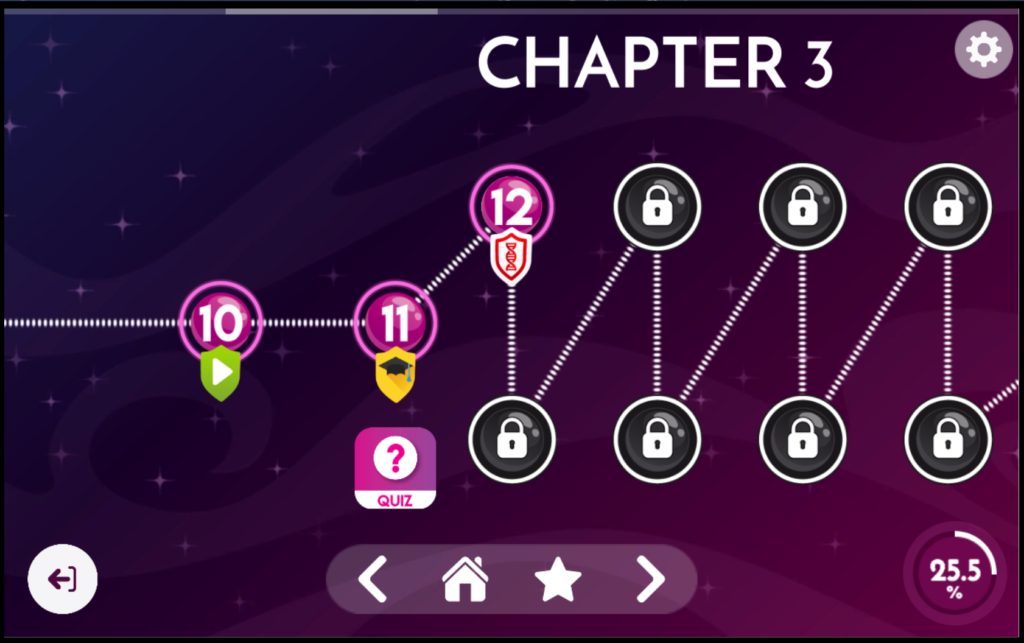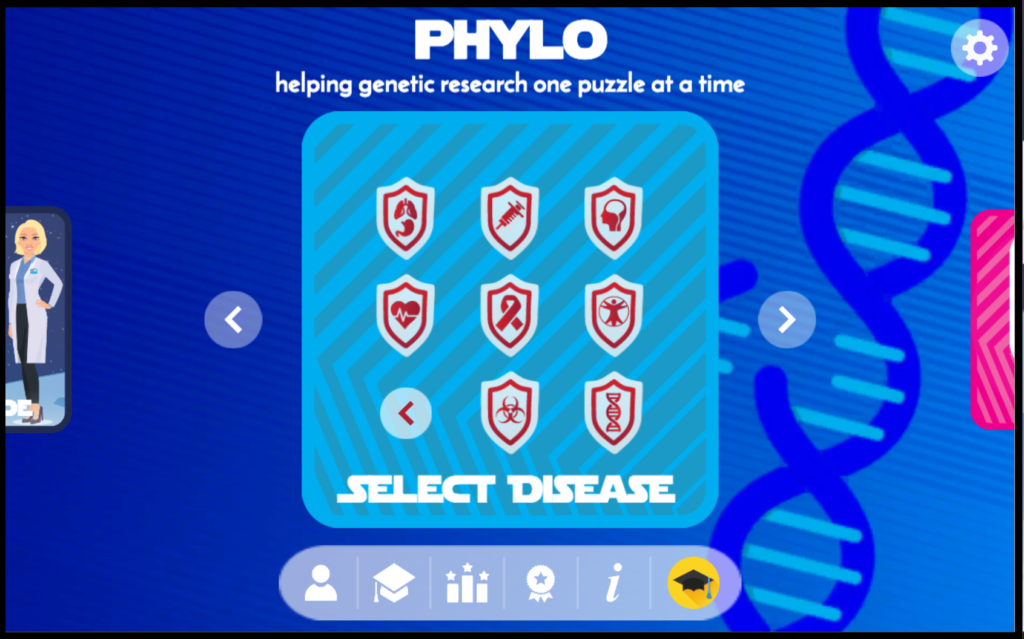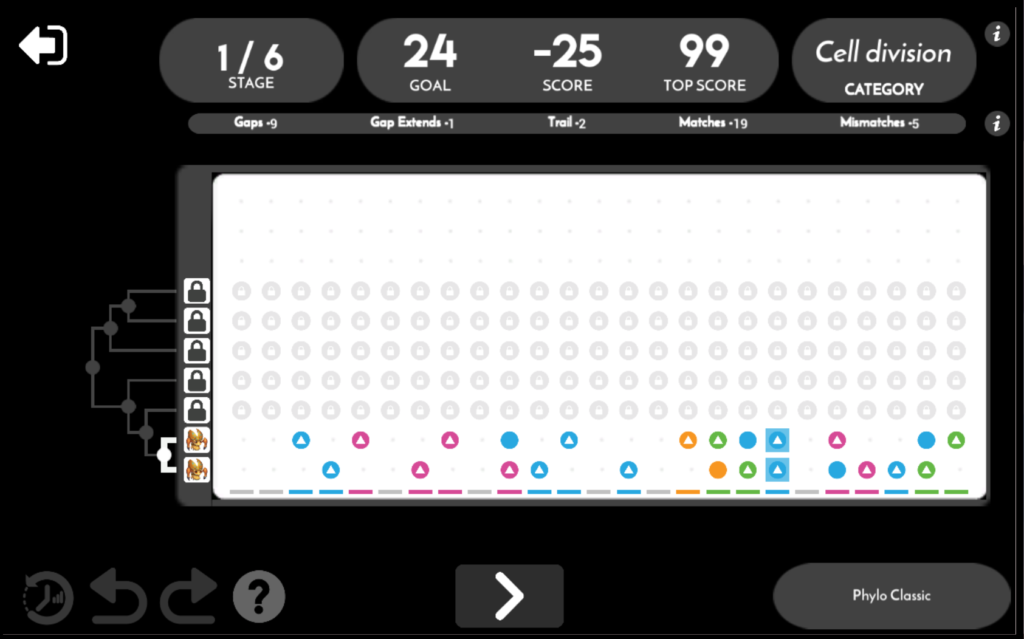Lately, I’ve been on an educational game/puzzle game kick. I’ve been seeking and trying out games that have real-world consequences, such that they help various scientific endeavors or real-world problems get solved.
These games work towards a solution, even if they do not provide one on their own. I’m not referring to games that are merely educational, attempting to teach this or that subject matter in a gamified way. Rather, I’m drawn to games where real-world problems are gamified, allowing people to engage with the issue via the game, even if they don’t fully understand the subject matter. Often, by solving puzzles, players can contribute to the overall project, which they often do understand, such as working on a cure for Alzheimer’s in the game Fold.it (see: ). And learn more about various subject matters in the process (if they so desire).
Today, I am trying another game called Phylo:
https://phylo.cs.mcgill.ca/play.php
This puzzle game focuses on matching DNA sequences from the animal kingdom to our own. Developed by researchers at McGill University, Phylo stands out in the realm of educational games because it’s not just about learning—it’s about contributing to science in a meaningful way.
The core concept of Phylo is brilliantly simple yet deeply impactful. Players are presented with sequences of colored blocks representing DNA, and their task is to align these sequences as closely as possible. Each puzzle represents a real genetic sequence from various species, and by solving these puzzles, players help scientists understand genetic mutations and evolutionary relationships. The data generated by players’ solutions can assist in identifying the genetic basis of diseases and contribute to the broader field of comparative genomics.

What I find particularly fascinating about Phylo is its accessibility. You don’t need a background in genetics to play. The game mechanics are intuitive, relying on pattern recognition and spatial reasoning skills rather than scientific knowledge. This opens the door for a wide audience to participate and make a genuine contribution to scientific research.
Playing Phylo is both challenging and rewarding. The puzzles range from easy to extremely difficult, ensuring that there is something for everyone. The game’s design is clean and straightforward, with a focus on functionality over flashy graphics, which I appreciate. It’s clear that the developers prioritized the scientific utility of the game over its aesthetic appeal, which is a refreshing change in the world of educational games.

One of the most compelling aspects of Phylo is the sense of purpose it instills in its players. Knowing that my puzzle-solving skills could potentially contribute to important scientific discoveries adds a layer of motivation that is often missing from traditional puzzle games. This isn’t just about beating a high score or completing levels—it’s about being part of a global effort to advance our understanding of genetics.
However, Phylo is not without its flaws. The game can sometimes feel repetitive, and the lack of variety in gameplay might deter some players from sticking with it long-term. Additionally, while the website provides some information about the scientific goals of the project, I would have liked to see more detailed updates on how players’ contributions are being used in ongoing research beyond the general categories it allows you to work on.

Despite these minor shortcomings, Phylo is an outstanding example of how games can bridge the gap between entertainment and scientific research. It offers a unique opportunity for players to engage with real-world problems in a fun and interactive way. Whether you’re a puzzle enthusiast, a science lover, or simply someone looking for a meaningful way to spend your free time, Phylo is worth checking out.
Scratch that, Phylo is more than just a game—it’s a tool for scientific discovery. It demonstrates the incredible potential of crowdsourcing and gamification in addressing complex scientific challenges. By transforming genetic research into an accessible and engaging puzzle game, Phylo empowers ordinary people to make extraordinary contributions to science. So, if you’re looking for a game that is both intellectually stimulating and socially impactful, give Phylo a try.
You might just find yourself contributing to the next big breakthrough in genetics.
